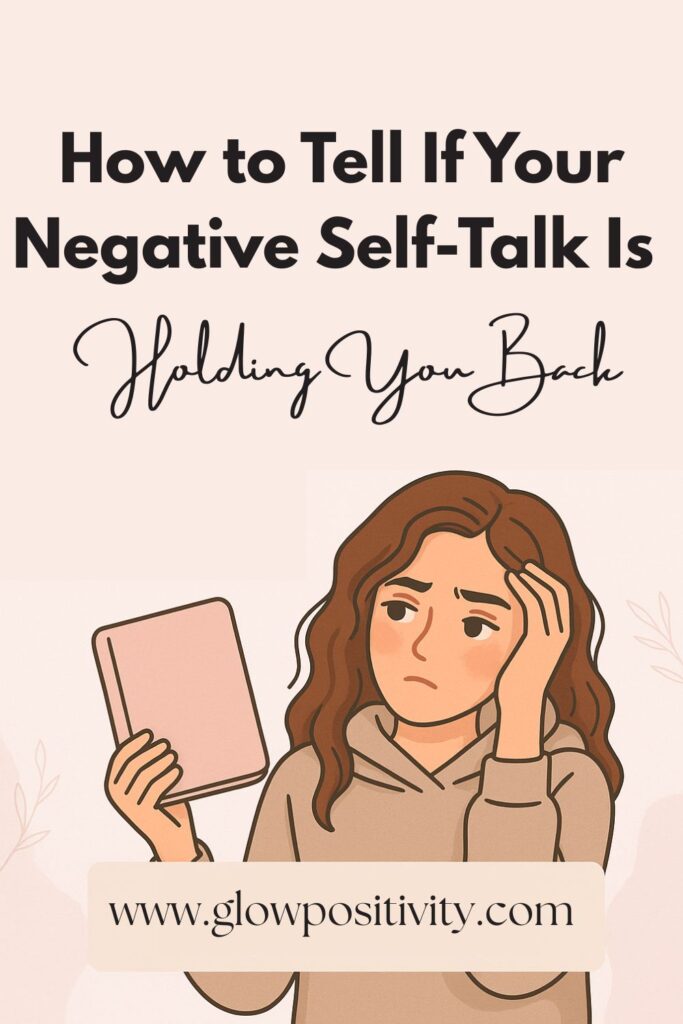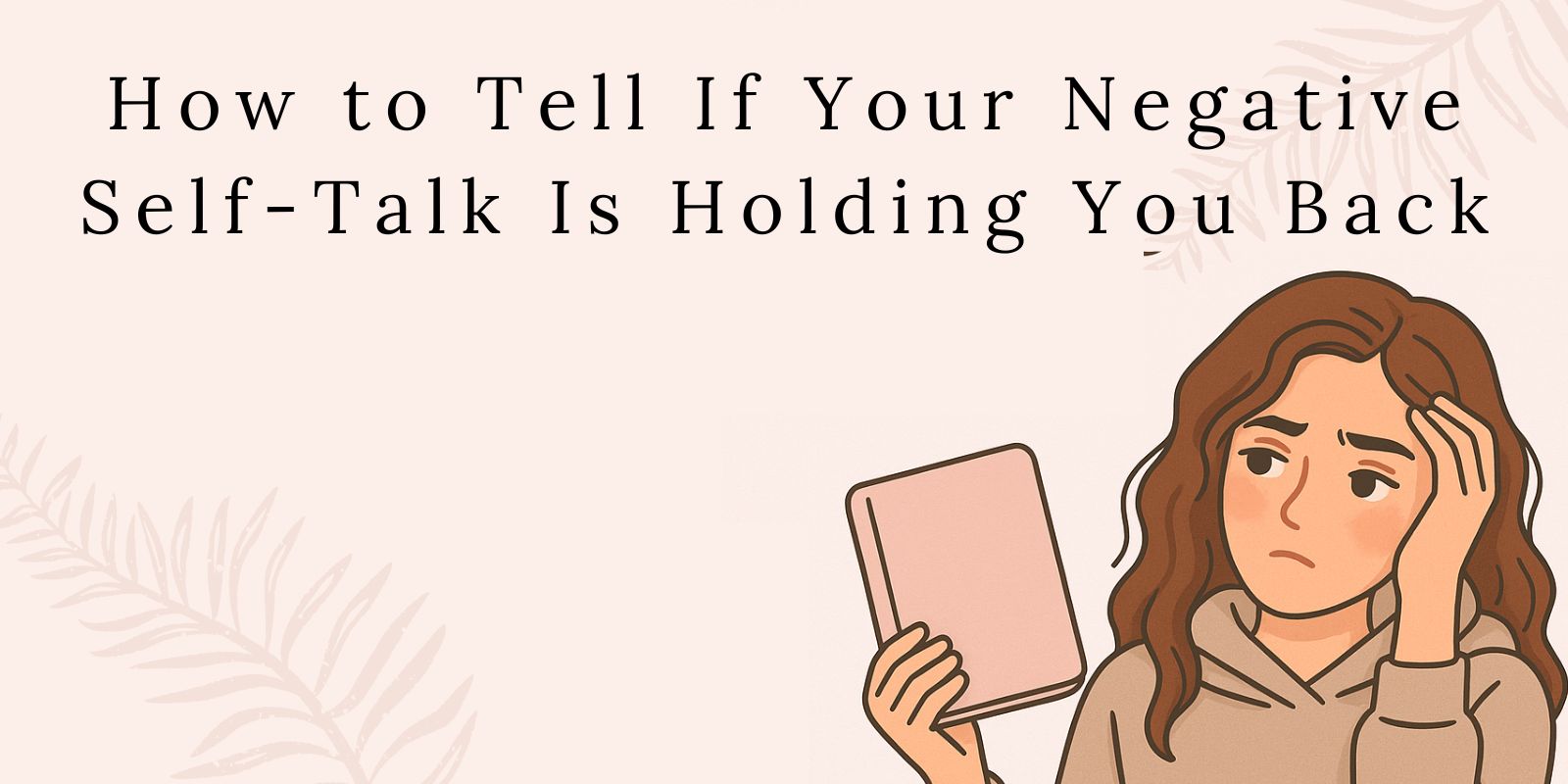Self-talk is our inner voice — we speak to ourselves more than we speak to anyone else in the world, and we listen to ourselves more than anyone too. What we say to ourselves affects so many parts of our lives. Negative self-talk can break us down, while positive self-talk can build us up.
Our inner dialogue impacts everything from our mood and self-confidence to our decision-making. And often, all of this happens without us even realizing what’s going on.
Signs Your Self-Talk Is Negative
Negative self-talk is not where you want to be — especially if you have big dreams and plans. Here are some tell-tale signs that your self-talk might be holding you back:
- You constantly put yourself down or doubt your abilities. This stops you from going after your goals and can kill your motivation before you even begin.
- You focus more on your flaws and mistakes instead of your strengths and achievements. This can seriously knock your self-confidence.
- You catch yourself using words like “always,” “never,” or “can’t” in negative scenarios. These kinds of thoughts keep you stuck.
- You struggle to accept compliments. This is a huge red flag! You are worthy — accept the compliment instead of brushing it off or putting yourself down.
Comparison is the thief of joy, and constantly feeling like you’re not good enough compared to others can take a toll on your happiness and mental health. Social media makes it easier than ever to fall into this trap, but when you catch yourself spiraling, pause and ask:
“Would I say this to someone I love?”
Chances are, you wouldn’t — we’re often so much harsher on ourselves than we would ever be to someone we care about.
Start noticing these moments. Try keeping a record of the things you say to yourself so you can reflect on them. Once you’re aware of what’s going on, it becomes so much easier to improve your mindset.
The Impact of Negative Self-Talk
The effects of negative self-talk can be huge, and the longer it goes on, the deeper the consequences.
It’s no surprise that it impacts your mental health — lowering your self-esteem and increasing anxiety. Staying in that negative space damages your confidence and, over time, can cause serious issues.
It affects your future too. Negative self-talk creates a cycle of self-sabotage that leads to procrastination and fear of failure. It stops you from making progress, limits your personal growth, and keeps you stuck instead of moving forward and reaching your goals. Even small thoughts like “I can’t do this” can reinforce limiting beliefs and make them grow stronger.
And it’s not just about how you treat yourself — negative self-talk can also impact your relationships. If you lack confidence and let others treat you badly, it becomes harder to walk away. When you’re used to speaking unkindly to yourself, your boundaries with others may become blurred too.
Steps to Improve Your Self-Talk
Here are some powerful steps to help you improve your inner dialogue and create a more positive mindset:
Become aware.
Pay attention to how you speak to yourself, what you’re saying, and how often these thoughts come up. Awareness is the first and most important step.
Interrupt the pattern.
Once you’ve noticed the thought, stop it in its tracks. Ask yourself:
“Is this actually true?” or “Is this helpful?”
These questions help bring clarity and perspective.
Reframe your thoughts.
Start shifting negative thoughts to more neutral ones. Eventually, work toward replacing them with positive thoughts. This doesn’t have to happen overnight — even moving from negative to neutral is a huge win.
Use affirmations.
Affirmations help lock in new beliefs. Choose simple, believable statements that feel good to you, and repeat them often.
Practice self-compassion.
Be kind to yourself. Talk to yourself the way you would talk to a close friend. This journey takes time — it’s a lifelong practice.
Surround yourself with positivity.
From podcasts and books to TV shows and social media — be intentional about the content and people you’re exposing yourself to.
Make it a daily habit.
The more you practice, the easier it becomes. Consistency is key, and over time, you’ll build momentum. It’s not about being perfect — it’s about making small shifts that add up.
Be gentle with yourself. You’re doing better than you think, and every time you choose a kinder thought, you’re creating a more empowered version of you.

